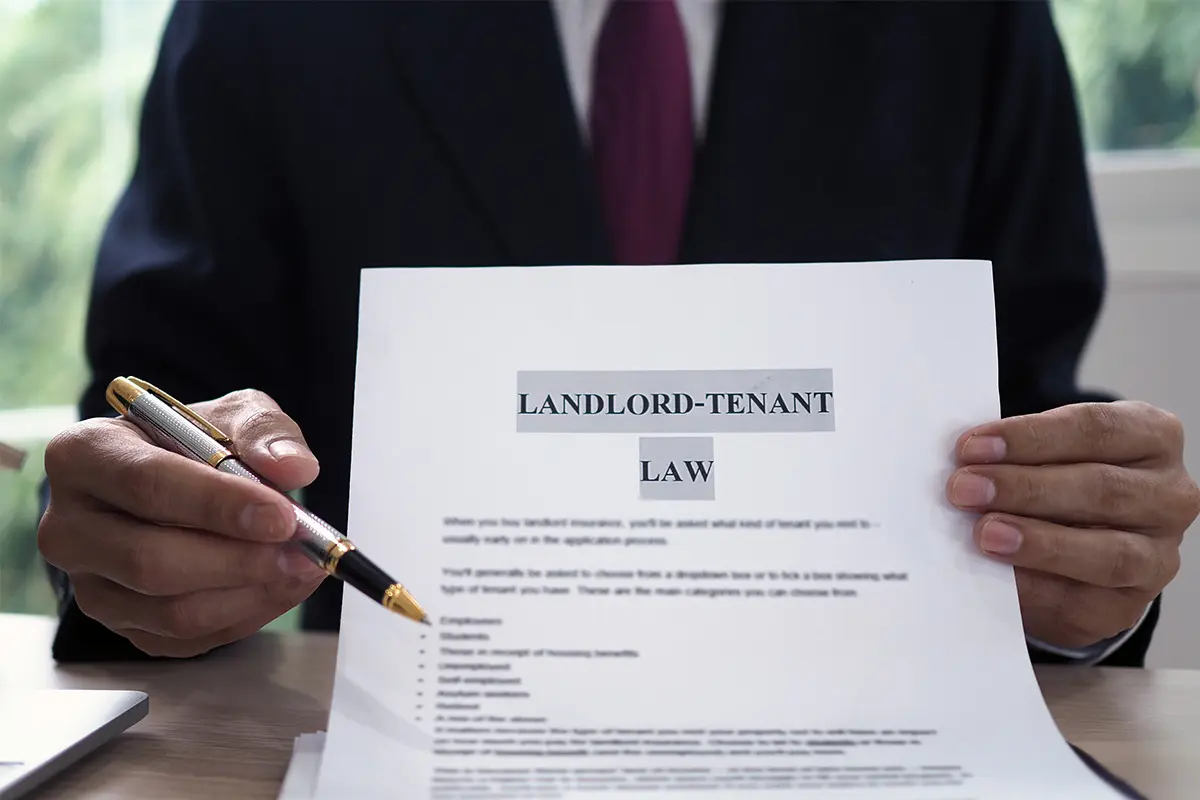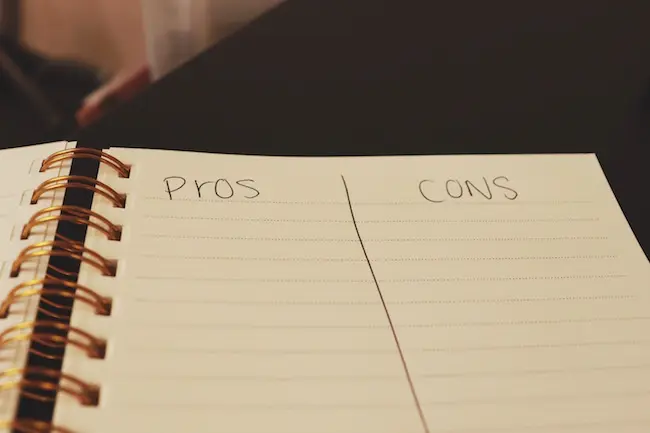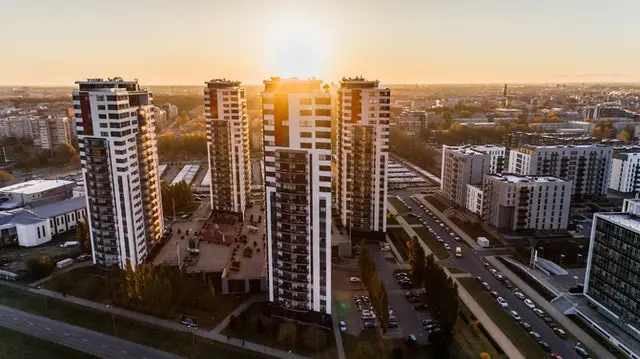The San Diego City Council is processing new and stricter tenant protection laws that will regulate how landlords rent. Not only will it limit when landlords can remove tenants, but it will also impose relocation assistance responsibilities for no-fault evictions. In this article, we cover the new tenant protection ordinance and how it impacts San Diego landlords and renters.
- What is the new renter protection law in San Diego?
- Do these new tenant protection laws apply to the City of San Diego, the County of San Diego, or both?
- Why were changes made to existing regulations in San Diego?
- What are the disadvantages of San Diego’s new tenant protection laws?
- Who voted for the legislation?
- How do the new tenant protection laws impact San Diego tenant rights?
- What new paperwork do landlords need to give tenants in San Diego?
- How does the new San Diego renter protection law affect tenants who don’t pay rent?
- How do the new tenant protection laws impact At-Fault evictions in San Diego?
- San Diego evictions for remodeling
- What are the downsides of the new tenant protection laws?
- What can I do if I don’t support these new tenant protection laws?
- Exemptions
- Tenant Resources
What is the new renter protection law in San Diego?
On Tuesday, April 25, 2023, the San Diego City Council approved a new legislation that calls for stricter renter protection in an 8-to-1 vote. (Source). The new legislation will require a landlord to provide relocation assistance to his/her tenants, which may cost 2-3 months of the price of rent for no-fault evictions.
Historically, the City of San Diego had the most lenient renter protection regulations in the state of California. However, with this new legislation, San Diego will now have much stricter regulations, surpassing that of AB 1482 (a.k.a. the Tenant Protection Act of 2019) in certain areas.
For example, California state law requires a landlord to pay the tenant one month of rent for no-fault evictions. On the other hand, San Diego’s new tenant protection laws will require a payment of two months of rent for no-fault evictions and three months of rent if the tenant is a senior (62+ years of age) or a person living with disabilites.
In addition, the new legislation would require that renter protections begin on the first day of tenancy. California, on the other hand, does not require renter protection until at least 12 months of tenancy.
Do these new tenant protection laws apply to the City of San Diego, the County of San Diego, or both?
The new tenant protection laws passed by the San Diego City Council only apply to the City of San Diego, not the County of San Diego.
Why were changes made to the existing regulations in San Diego?
The new tenant protection laws, proposed by Mayor Gloria and Council President Sean Elo-Rivera, are intended to bring San Diego up to the standards set by AB 1482. However, the new legislation surpasses AB 1482 in a few ways:
- Tenant protections apply on the first day of renting.
- Higher financial assistance is required for no-fault evictions.
- Accountability measures will prevent bad landlords from getting away with violating tenant protection laws.
These new tenant protection laws are specifically aimed at landlords who remove tenants in order to make minor renovations, and then re-rent units for far higher rates.
Even though the new laws are intended to prevent bad actors from evicting and re-renting at much higher prices, there will likely be significant and unintended effects on the San Diego housing market.
What are the disadvantages of San Diego's new tenant protection laws?
Although renter advocates are in favor of this new law, many landlords argue that the proposed changes will negatively affect the San Diego housing market.
The financial implications of this new legislation disproportionately affect smaller non-corporate landlords and seasonal landlords, which account for over 65% of San Diego landlords. As a result, many non-corporate landlords might give up on renting their properties altogether. With less properties on the market, rental prices will increase to satisfy demand.
Additionally, landlords argue that the high eviction cost will make it more difficult for them to make necessary repairs and renovations, which could lead to safety concerns within the rental units.

Who voted for the legislation?
City Councilmembers representing the nine different San Diego districts casted their votes on Tuesday, April 25, on the proposed changes to the city’s existing rental regulations. These legislation changes were approved in an 8-to-1 vote.
Councilmember Jennifer Campbell, who represents District 2, is the only member who voted against the proposed legislation and amendments.
Other councilmembers, while approving the new legislation, proposed to include additional amendments that they believe to be useful in enhancing the effectiveness of the legislation. For instance, Councilmember Marni von Wilpert of District 5 proposed an amendment that would push back the implementation of the law for certain landlords until early 2024 to allow them more time to adjust. In another instance, Council President Sean Elo-Rivera of District 9 urged for an amendment requiring landlords to notify the San Diego Housing Commission of any at-fault evictions, as well as explain the reason behind such evictions.
How do the new tenant protection laws impact San Diego tenant rights?
In addition to California statewide standards, San Diego tenants will receive the following additional protections under the new law:
- Renter protection laws will apply on the first day of tenancy (with some exceptions).
- Tenants evicted for no fault of their own are entitled to 2 months’ rental assistance, or 3 months’ rental assistance if the tenant is a senior (62+ years of age) or person living with disabilities.
- Stronger protections for when a substantial remodel can terminate a lease.
- Require tenants receive more notice when substantial remodels are planned.
- Require tenants receive educational resources during move-in.
- Provide tenants with more options for temporary relocation.
- Provide tenants with additional legal help, such as attorney fees, exemplary damages, and a process for buyout agreements.
You can read the full ordinance here.
What new paperwork do landlords need to give tenants in San Diego?
The San Diego Housing Commission will prepare a Tenant Protection Guide and make it available on their website. This guide will include educational information and resources to help tenants understand their rights under the Division and state.
Once the new legislation passes, landlords in the City of San Diego will be required to give this Tenant Protection Guide to their renters at the time the lease is signed.
If you’re already renting out your property, then you have 90 days to give your tenants a copy of the Tenant Protection Guide (once it is made available on the San Diego Housing Commission website).
How does the new San Diego renter protection law affect tenants who don't pay rent?
While the new law will protect San Diego tenants who follow rental rules and pay rent on time, the new law will not protect tenants who violate their lease contract in any way. For example, if a tenant chooses to not pay rent or causes damage to the rental property, then the tenant is not entitled to relocation assistance.
However, the new legislation does include a change to the eviction process. Currently, a landlord can begin the eviction process right away if a tenant is found to violate their lease agreement in any way. The new law, on the other hand, will require a landlord to notify their tenant of the reason for eviction (i.e., not paying rent). The new law also requires landlords to give the tenants time to fix their mistake before eviction.
How do the new tenant protection laws impact At-Fault evictions in San Diego?
The new tenant protection laws require that landlords give their tenants a notice of fixable lease violations (such as unauthorized pets, property damage, or not paying rent) prior to evictions. Landlords must also give tenants an opportunity to fix their violation(s). Prior to the new legislation, landlords could begin the eviction process immediately upon lease violation.
An amendment in the ordinance will also require that landlords notify the San Diego Housing Commission of At-Fault evictions no later than three business days after the landlords provide notice to the tenants. This clause, however, will not apply until 30 days after the San Diego Housing Commission creates a submission portal and informs the public of its creation.
For detailed information on how to perform an at-fault eviction in accordance with the new San Diego tenant protection laws, please refer to the SanDiego.gov Housing and Tenant Protections page.
San Diego Evictions for Remodeling
Tenant Disclosure Laws for Remodeling Home
If you’re looking to regain possession of your rental property for the purposes of home remodeling, then you must disclose your intention to do so to your tenants. According to the new legislation, landlords must let tenants know they are applying for remodeling permits three days before submitting applications. However, applying for permits is not enough. You must also successfully secure the permits necessary for demolition or substantial remodel.
After receiving permits, you need to serve a copy of the necessary permits with a written termination notice. In the termination notice, you need to disclose:
- the scope of work that will be performed;
- why the tenant cannot safely live in the property while the construction is taking place;
- why construction is needed, and
- why the construction requires the tenant to vacate the property for (at least) 30 days.
What qualifies as a substantial remodel?
The new legislation still allows landlords to regain possession of their rental if they intend to remodel it. However, the city has tightened the restrictions around what qualifies as a substantial remodel. According to the City Council, substantial remodels include:
- Replacing or significantly modifying structural systems.
- Changing electrical systems.
- Redoing the property plumbing.
- Replacing or significantly modifying mechanical systems.
- Getting rid of hazardous materials, such as lead-based paint, mold, or asbestos.
On the other hand, substantial remodels do not include:
- Cosmetic improvements,
- Painting,
- Decorating, or
- Minor repairs.
A good rule of thumb: if your remodel requires a permit from a governmental agency, then it will likely be considered a “substantial remodel” to the City Council.
Are previous tenants entitled to re-rent after remodeling?
Another stipulation of the new legislation includes that renters, who were evicted for no-fault of their own, must be given a chance to renew their tenancy if the property returns to the rental market after five years.
Do landlords have to pay for relocation in San Diego?
With the new San Diego tenant protection laws, landlords will be required to pay 2-3 months of rent to tenants for no-fault evictions. The relocation assistance payment must be given to the tenant within 15 days of their eviction notice. If a tenant is evicted by just-cause, however, landlords are not required to pay relocation assistance.
For detailed information on how to perform a no-fault eviction in accordance with the new San Diego tenant protection laws, please refer to the SanDiego.gov Housing and Tenant Protections page.
What are the downsides of the new tenant protection laws?
Landlord groups, who spoke during the city council meeting, said the 2-3 month rent payment was unfair because it added undue costs. In addition, these new laws will make property repairs more difficult. And, most importantly, these new laws can cause landlords to give up on the business of renting altogether.
As we’ve seen in cities across the United States, strict rental regulations often lead to unaffordable housing. For instance, New York City has some of the strictest rent control laws, but also has the highest average rent. (Source).
According to the Southern California Rental Housing Association, 65% of landlords in San Diego are “mom and pop landlords” (noncorporate). Many of these landlords own only a few properties and already struggle with costs. These new tenant protection laws will increase their costs further. When landlords’ costs increase, they have no choice but to increase rent.
Even though these new tenant protection laws were passed to keep bad landlords in check, there could be negative consequences that cause significant housing insecurity in San Diego.
What can I do if I don't support these new tenant protection laws?
If you don’t support the new tenant protection laws, you can call your council member and discuss your concerns. For a list of District Council Members, visit this SanDiego.gov.
Exemptions
Do the New Tenant Protection Laws apply to single-family homes?
The new ordinance does not apply to residential rental property in which the tenant shares a bathroom or kitchen with the landlord; or the landlord rents out an accessory dwelling unit from their place of residence.
Single family homes are also exempt from the new ordinance if they are separate from any other title or dwelling unit and the landlord is not: (1) a real estate invested trust, (2) a corporation, (3) a Limited Liability Company (LLC), or (4) a management of a mobile home park.
If your property qualifies for exemption, you must provide a written notice of the exemption from the ordinance to your tenant(s) at the time the lease is signed. For an example of an appropriate exemption notice, please refer to section 98.9793 of the ordinance.
Do the New Tenant Protection Laws apply to accessory dwelling units?
The new tenant protection ordinance in San Diego does not apply to accessory dwelling units.
Do the new San Diego Tenant Protection Laws apply to Section 8 Housing?
The new legislation passed by the San Diego City Council exempts Section 8 housing. For a full list of residential properties exempt from the new tenant protection laws, please refer to section 98.0703 of the city ordinance.
Closing Thoughts...
Managing one or more properties can be challenging and time-consuming for seasoned and first-time landlords. In addition to taking care of maintenance requests and tenant complaints, you have to stay on top of local laws and regulations. However, owning rental property doesn’t have to be hard. If you’re looking to find easy property management solutions, consider Good Life Property Management. Learn how we make owning rental property in San Diego easy through our Client Guide.
Legal Disclaimer: This article is intended for educational-purposes only. Information in this article does not constitute, in any manner, an attorney-client relationship between Good Life Property Management and the reader. While the information in this article reports on new legislation, it is not intended as legal advice or as a substitute for attorney advising. This article is provided on an “as is” basis with no guarantee of completeness, accuracy, usefulness, or timeliness.
If you found this article helpful, follow us on social media. We post daily tips to help you manage your own rental property:
Tenant Rights and Protections
If you are a tenant looking for legal help, you may call:
- Legal Aid Society of San Diego
- Phone: (877) 534-2524
- www.lassd.org
- San Diego Volunteer Lawyer Program (SDVLP)
- Phone: (619) 235-5656 x127
- Tenants Legal Center
- Phone: (858) 571-7100
Resources
Further Reading
Steve Welty
Subscribe to our Weekly Newsletter
Join the 5k+ homeowners receiving Local Law Updates and Landlord Tips. Delivered to your inbox every Saturday at 6am PST.
Share this:
Get in touch with us:
We make owning rental property easy.
Choose Your Next Step
Good Life Blogs
We believe that education is empowering.
Pros and Cons of Hiring a Property Management Company
Read about the pros and cons of using a property management company to manage your rental properties. In this article, we touch on what makes a property management company beneficial but also why some people might be hesitant to hire.
Pros and Cons of Rent Control
The subject of rent control has become increasingly popular over the last couple decades. As rent prices continue to skyrocket across the country, more and more tenants get priced out of their homes and neighborhoods. This is why the majority of tenants are in favor of…
Section 8 in San Diego: How It Works
Rental assistance in San Diego is a hot topic as of late. Many landlords and property managers have heard of Section 8, but don’t know all the ins and outs of the program. As of January 2020, all landlords and property managers are required to accept Section 8 housing vouchers as a form of income…










